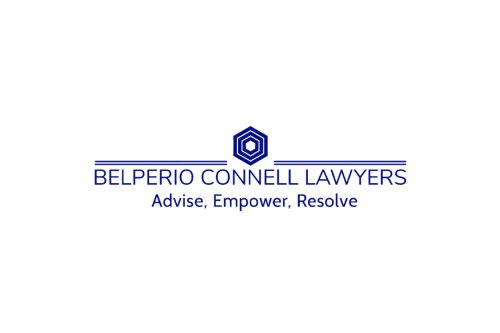Best Appeal Lawyers in Adelaide
Share your needs with us, get contacted by law firms.
Free. Takes 2 min.
List of the best lawyers in Adelaide, Australia
About Appeal Law in Adelaide, Australia
Appeal law in Adelaide, as in the rest of Australia, is a critical component of the judicial system that offers individuals the opportunity to challenge decisions made by courts and tribunals. This legal process ensures justice by allowing for the review of a decision to determine if there was an error in judgement or procedure. The appeal system operates within a hierarchy of courts, starting from the Magistrate's Court and escalating to the Supreme Court of South Australia and the High Court of Australia, if necessary.
Why You May Need a Lawyer
Seeking legal assistance for an appeal is often crucial due to the complexity of the legal system and procedural requirements. Common situations where legal help might be needed include:
1. Dissatisfaction with a court ruling or sentence in criminal matters. 2. Perceived errors in legal proceedings that impacted the outcome of a case. 3. Unfair treatment or misapplication of the law during a trial or hearing. 4. Civil cases where there is disagreement with the outcome regarding disputes, contracts, or financial liabilities. 5. Family law matters where you feel the decision was unjust, such as in custody or property settlement cases. 6. Administrative decisions by government bodies that are believed to be incorrect or unfair.
Local Laws Overview
In Adelaide, appeal procedures are governed by both state and federal laws. Key aspects include:
1. Time Limits: Strict deadlines exist for filing appeals, typically within 21 to 28 days from the decision date. 2. Grounds for Appeal: Appeals must be based on legal grounds such as a mistake in law, a misinterpretation of facts, or procedural issues. 3. Leave to Appeal: For certain cases, permission (or leave) may be required to proceed with an appeal, evaluated based on prospects of success or public interest. 4. Written Submissions: Often required to outline the basis of appeal, how the law was applied incorrectly, and what rectification is sought. 5. Hearing Process: Appeals are often decided without a full rehearing, focusing instead on legal arguments and the trial court's record.
Frequently Asked Questions
What is the first step to take if I want to appeal a court decision?
The first step is to seek legal advice immediately to understand your prospects of success and to ensure compliance with procedural deadlines.
Can I introduce new evidence in an appeal?
Generally, new evidence is not allowed in appeals unless it could not have been reasonably presented at the original trial. Restrictions apply, and legal advice is crucial.
How long do appeal processes typically take?
Appeal timelines vary depending on the case complexity, court backlog, and legal issues involved. Simple cases may resolve in a few months, while complex ones might take over a year.
Do I need to attend court for an appeal?
Physical attendance may not be required; many appeals are resolved based on written submissions. However, certain cases may still necessitate a hearing.
What are the possible outcomes of an appeal?
The outcomes include upholding the original decision, reversing the decision, ordering a retrial, or modifying the decision in certain respects.
Will appealing a decision stop its implementation?
Filing an appeal does not automatically stay the execution of the decision. A separate application for a stay might be required.
Are there costs associated with appealing a decision?
Yes, there are filing fees, legal representation costs, and potentially, the opposing party's costs if the appeal is unsuccessful.
How can I determine if I have grounds for an appeal?
Consultation with a legal professional is essential to evaluate whether the decision was legally flawed or if procedural errors occurred.
How does legal aid work for appeals?
Legal aid may be available depending on financial circumstances and the appeal's merits. Contact your local Legal Services Commission for more info.
Can I appeal more than once?
Usually, one appeal is allowed per case unless new legal issues or evidence arise that justify further action. Higher courts' decisions can sometimes be appealed to an even higher authority.
Additional Resources
Individuals seeking assistance can consider the following organizations:
1. Legal Services Commission of South Australia for legal aid and advice. 2. Law Society of South Australia for finding and consulting lawyers. 3. Consumer and Business Services for appeals related to consumer rights. 4. Supreme Court of South Australia for procedural guides related to appeals.
Next Steps
If you believe you require legal assistance in appeal matters, it is essential to act quickly due to strict filing deadlines. Start by gathering all relevant documentation about your case, then seek advice from a qualified legal professional who specializes in appeals. Consider reaching out to the Legal Services Commission for potential aid or consultation, and make an informed decision on whether to proceed with an appeal. By understanding your rights and options, you can ensure that you navigate the appellate process effectively.
Lawzana helps you find the best lawyers and law firms in Adelaide through a curated and pre-screened list of qualified legal professionals. Our platform offers rankings and detailed profiles of attorneys and law firms, allowing you to compare based on practice areas, including Appeal, experience, and client feedback.
Each profile includes a description of the firm's areas of practice, client reviews, team members and partners, year of establishment, spoken languages, office locations, contact information, social media presence, and any published articles or resources. Most firms on our platform speak English and are experienced in both local and international legal matters.
Get a quote from top-rated law firms in Adelaide, Australia — quickly, securely, and without unnecessary hassle.
Disclaimer:
The information provided on this page is for general informational purposes only and does not constitute legal advice. While we strive to ensure the accuracy and relevance of the content, legal information may change over time, and interpretations of the law can vary. You should always consult with a qualified legal professional for advice specific to your situation.
We disclaim all liability for actions taken or not taken based on the content of this page. If you believe any information is incorrect or outdated, please contact us, and we will review and update it where appropriate.












